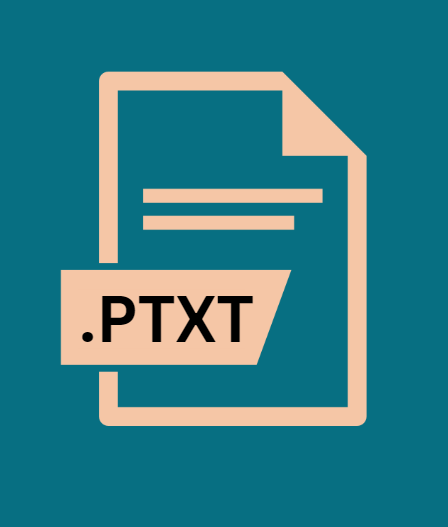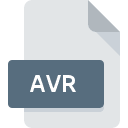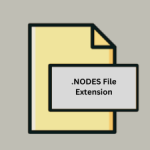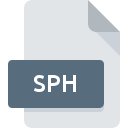.PTXT File Extension

Pro Tools Session Template
| Developer | Avid Technology |
| Popularity | |
| Category | Audio Files |
| Format | .PTXT |
| Cross Platform | Update Soon |
What is an PTXT file?
.PTXT files, known as Pro Tools Session Templates, are a cornerstone in the realm of professional audio production.
Created by Avid Technology, these files are associated with Pro Tools, an industry-standard software for music and audio post-production.
The .PTXT file extension represents a template format that retains the predefined settings of a Pro Tools session, allowing audio engineers and producers to kickstart new projects with pre-configured settings, including track layouts, mixer settings, and plug-in configurations.
More Information.
The history of .PTXT files is intertwined with the evolution of Pro Tools. Since its inception, Pro Tools has been at the forefront of technological advancements in audio production.
The initial purpose of the .PTXT file was to provide a quick-start framework for audio projects. This was particularly beneficial in fast-paced environments where time is of the essence, such as in broadcasting or music production.
By saving session templates, users could maintain a standard across different projects, significantly reducing setup time and minimizing room for error.
Origin Of This File.
The .PTXT file format is inherently tied to Pro Tools, a digital audio workstation (DAW) developed by Avid Technology.
Pro Tools has been a pivotal force in shaping the audio production landscape, and the introduction of session templates was a strategic enhancement aimed at optimizing workflow efficiency.
The .PTXT file extension emerged as a solution for professionals to save and replicate session settings effortlessly, ensuring consistency across projects and teams.
File Structure Technical Specification.
.PTXT files are structured to store various settings of a Pro Tools session. This includes track information, mixer settings, routing preferences, and plug-in configurations.
The files are encoded in a way that Pro Tools can read and apply these settings to a new or existing session. The technical specifications ensure that the .PTXT files are lightweight yet comprehensive, making them easy to share and transfer without compromising on the richness of the data they carry.
How to Convert the File?
Converting a .PTXT (Pro Tools Session Template) file to a different format is not a straightforward process because .PTXT files are proprietary to Avid Technology’s Pro Tools software and are designed to hold session template information specific to that platform.
There are ways to extract usable data or transform these templates for use in other digital audio workstations (DAWs) or formats. Here’s how you might approach it:
Within Pro Tools:
If you’re looking to use the contents of a .PTXT file in a different format but still within Pro Tools, you can create a new session from the template and then save or export that session in your desired format.
1. Open the .PTXT File:
- Launch Pro Tools.
- Go to ‘File’ > ‘Open Session Template…’ and select the .PTXT file.
2.Create a New Session from the Template:
- Once the template is open, you can save this as a regular session file (.ptx).
3.Export Data:
- You can export certain data (like track data, MIDI, audio files, etc.) using Pro Tools’ built-in export features.
Conversion to Other DAWs:
If you want to use the data from a .PTXT file in a different DAW, you’ll have to consider what aspects of the session template you need (track layouts, audio settings, plugin configurations, etc.). Most DAWs won’t directly read .PTXT files, but you can:
1. Export MIDI and Audio:
- Open the template in Pro Tools.
- Export any MIDI or audio tracks as standard files (.mid for MIDI, .wav or .aiff for audio).
2. Note Down Settings:
- Manually note down track settings, plugin configurations, and routing if you need to replicate these in another DAW.
3. Use Conversion Tools:
- Some third-party tools and services claim to convert sessions between different DAWs. AATranslator is one such tool, though the success of the conversion can vary based on the complexity of the session and the specific DAWs involved.
Converting for Archival or Sharing Purposes:
If you’re looking to convert .PTXT files for archival or sharing purposes (where the recipient does not use Pro Tools), consider:
1. Creating a PDF or Document:
- Open the .PTXT file in Pro Tools.
- Document the settings, track layouts, and other relevant information.
- Use screen capture tools to take images of the mixer settings, plugin settings, etc.
- Compile this information into a PDF or word document.
2. Audio Stems:
- Export all tracks as audio stems (individual audio files for each track), allowing others to import these tracks into their DAW of choice.
Advantages And Disadvantages.
Advantage:
- Efficiency: .PTXT files significantly reduce the setup time for new projects by applying preset configurations.
- Consistency: Ensures uniformity across different sessions or projects, which is crucial in collaborative environments.
- Portability: These files are relatively small and can be easily transferred between systems or shared with team members.
Disadvantage:
- Compatibility: .PTXT files are specifically designed for Pro Tools and may not be directly usable with other DAWs without conversion or third-party tools.
- Complexity for Beginners: New users may find the plethora of settings within a .PTXT file overwhelming if they are not familiar with Pro Tools’ environment.
How to Open PTXT?
Open In Windows
Using Pro Tools:
- Ensure that Pro Tools is installed on your system.
- Navigate to the location of your .PTXT file in File Explorer.
- Double-click the .PTXT file. If Pro Tools is the default application for this file type, it should open the session template directly.
- Alternatively, you can open Pro Tools, go to the ‘File’ menu, select ‘Open Session Template…’, and then navigate to your .PTXT file.
Open In Linux
Linux does not natively support Pro Tools, but you can use a compatibility layer:
Using Wine:
- Install Wine, a free compatibility layer that allows you to run Windows applications on Linux.
- Install Pro Tools within Wine.
- Navigate to your .PTXT file using the file browser within your Wine environment and double-click to open it with Pro Tools.
Open In MAC
Using Pro Tools:
- Make sure Pro Tools is installed on your Mac.
- Locate your .PTXT file in Finder.
- Double-click the .PTXT file to open it. If Pro Tools is set as the default application for .PTXT files, it will launch and open your session template.
- You can also open Pro Tools, choose ‘File’ > ‘Open Session Template…’ from the menu, and then select your .PTXT file.
Open In Android
Directly opening and editing .PTXT files on Android is not feasible as there is no Pro Tools application for Android. However, you can:
- Transfer and store .PTXT files on your Android device for backup or transfer purposes. You can use file management apps to move the files to and from your device.
- For viewing the contents of the .PTXT file (text-based data), you might use a text editor app. However, this will not provide meaningful editing capabilities and is not recommended for non-technical users.
Open In IOS
- Use your iOS device to carry or transfer .PTXT files. File management apps on iOS can help you store and move these files as needed.
- You might be able to view the raw contents of a .PTXT file using a text editor app on iOS. This is generally not useful for practical purposes and does not provide a true understanding or editing capability of the session template.
Open in Others
For other systems or platforms where Pro Tools is not available, the options are quite limited:
- As mentioned earlier, consider converting the .PTXT file to a more compatible format using Pro Tools on a supported system. You can then transfer and use the converted files on other systems.
- Look for any third-party tools or services that claim compatibility with Pro Tools files. This is not a common scenario, but some specialized conversion or compatibility tools might exist.
- If the goal is to share the configuration or settings of a .PTXT file with someone who does not have Pro Tools, consider creating a detailed document as described earlier, outlining the settings, track configurations, and plugin information.













